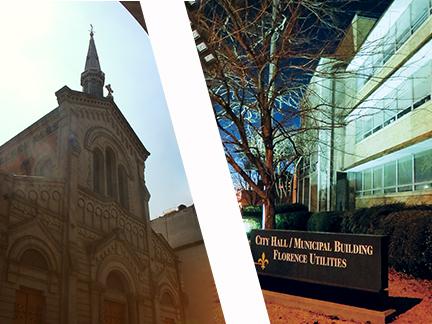UNA students question church, state separation
January 16, 2014
At a young age, children are taught the fundamentals of the separation of church and state. At an age where the typical college student questions everything, church and state lines in politics are not excluded.
“The First Amendment deals with freedom of religion,” said Tim Collins, associate professor of political science. “It says that Congress shall make no law that establishes a religion and it’s called the establishment clause.”
Though Congress has come to interpret it differently now, there are essentially two types of separation between church and state. The first type is the pre-exercise meaning Congress should not stop a person from exercising their religion the other type is the principle that Congress should not establish a state religion, Collins said.
The Lemon v. Kurtzman case created the Lemon Test to decided if a case was violating the separation of church and state. It was a three-prong analysis of what the court used to decipher whether or not the state was creating an established religion, Collins said.
The court applied the test but as soon as they issued the test many courts immediately began to have cases where they departed from the Lemon test, and, in turn, they developed two subsequent tests, Collins said.
“One is an endorsement test which questions if the state is endorsing one religion over another,” Collins said. “After that they developed what they called a coercion test which meant that the state couldn’t coerce someone into a religious activity.”
As long as a citizen’s religious activities don’t privilege religious believers over another community they should be able to practice those religious activities, Collins said.
“For some people who are really religious I don’t know if they should necessarily have to full on believe that whole evolution theory,” said freshman Taylor Burns. “I know some people who are really offended by that are really religious, but they have to learn it though because its part of the class.”
They have to intermingle because religion is part of some people’s everyday life and a person is going to interact with people every day that aren’t religious and you cannot avoid it, Burns said.
“If you were to say that people can’t talk about their religion in society then that would be taking away your freedom of speech,” Burns said. “They’re (church and state) going to have to intermingle. People can’t be so sensitive.”












